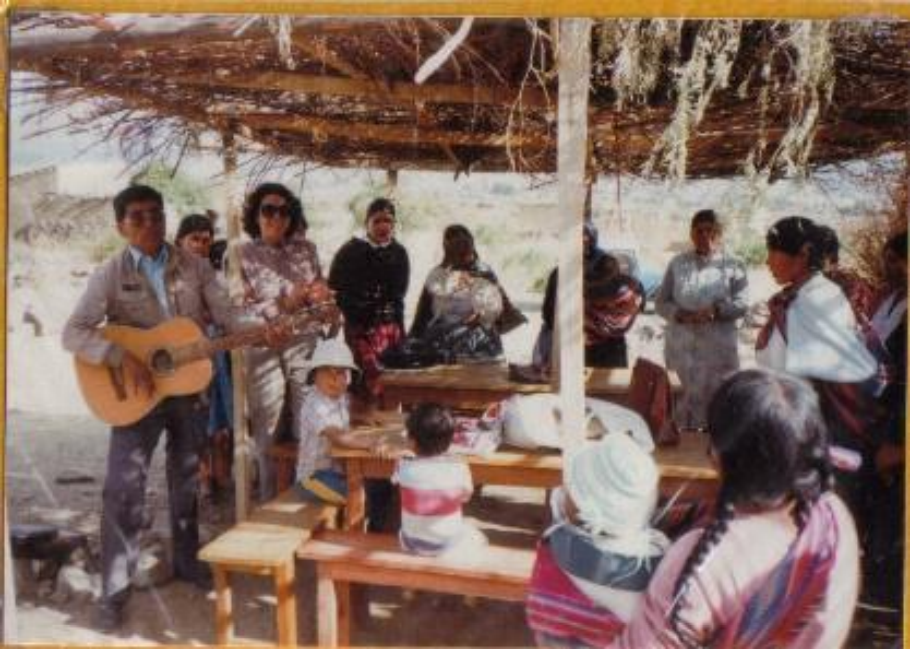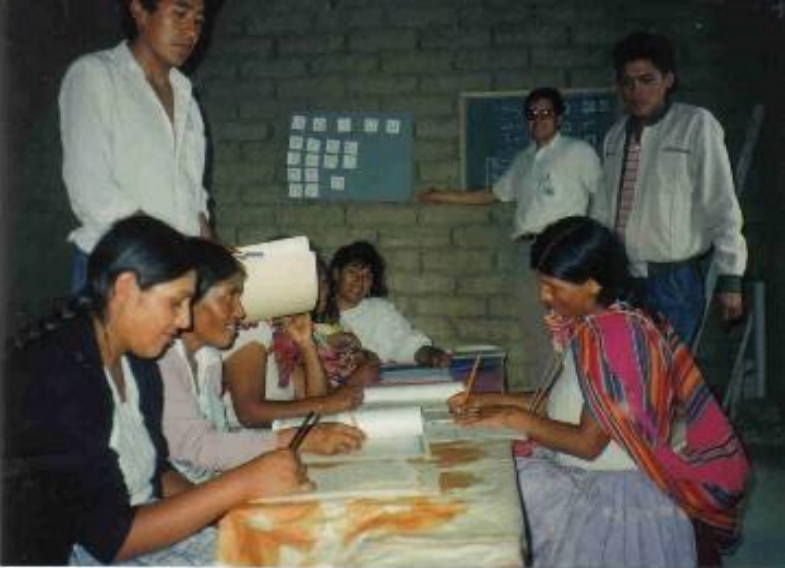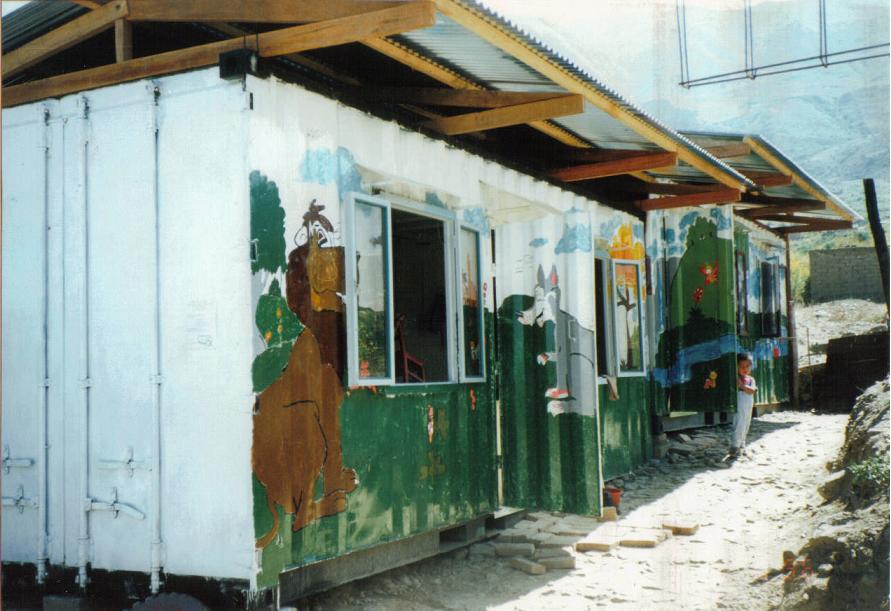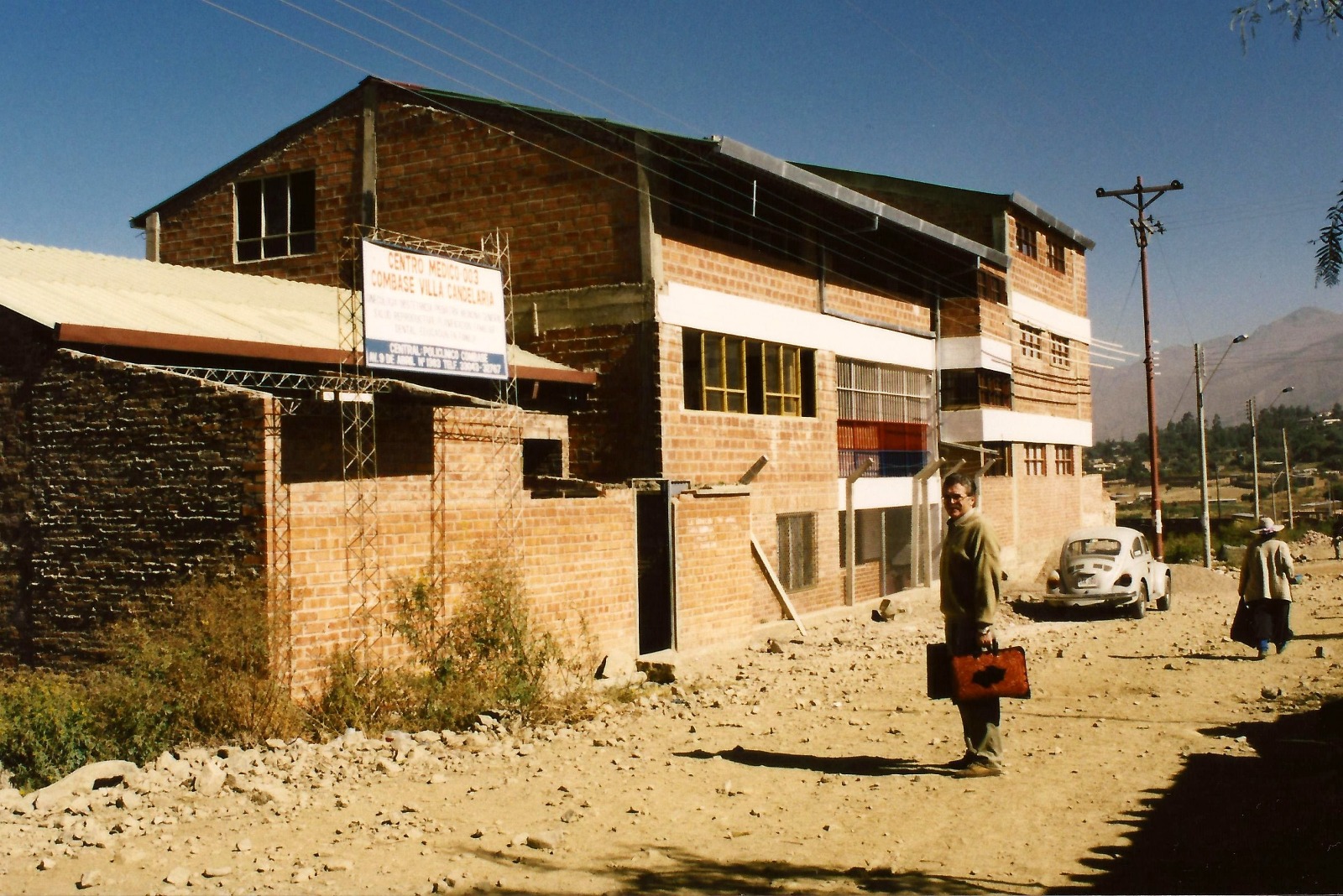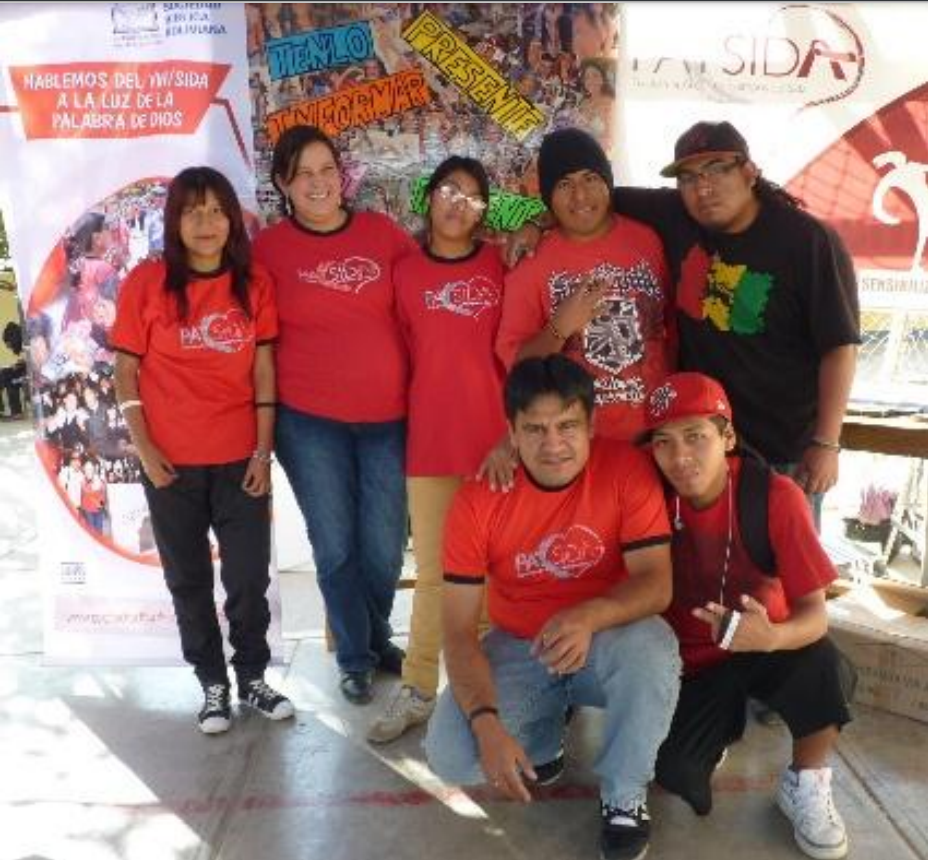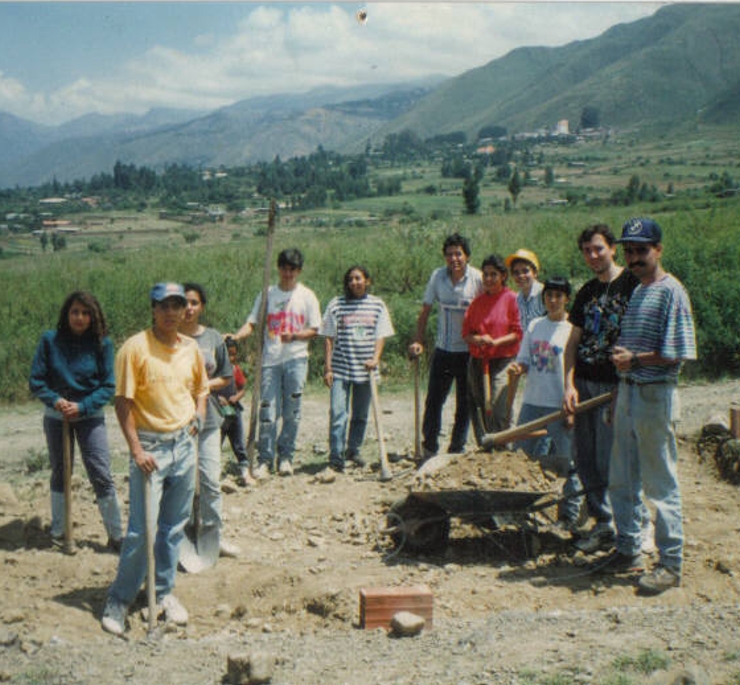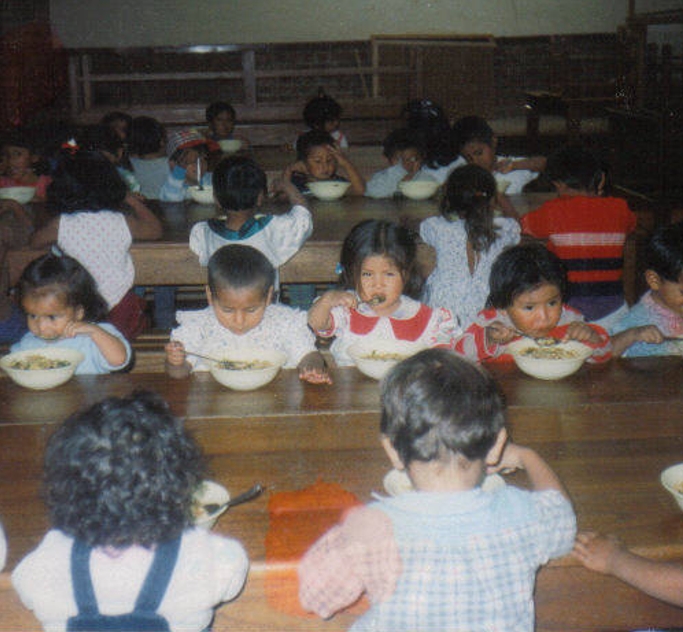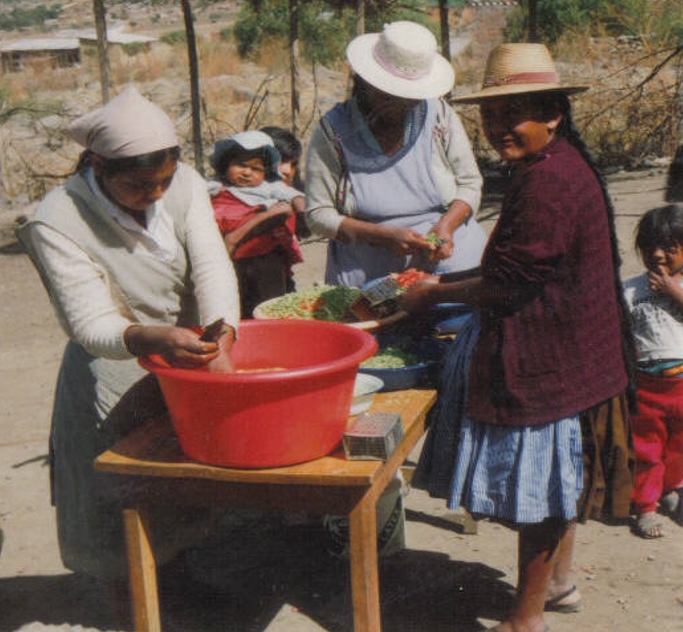Our History
The Origin of OESER
In 1989, a resident of Villa Candelaria told Mrs. Beatriz Band about the difficulties he and other "relocated miners" who lost their jobs in the Oruro and Potosí Mines were facing due to the threat of demolition of their homes built without permission. Thanks to the advocacy of pioneering individuals, these actions were halted and a support program for the affected families was initiated.
From conversations with mothers about their needs, a "Mothers' Club" was formed with the participation of several volunteer women. Sister Margarita Lauchenauer began her contribution in organizing this club and her husband Peter Lauchenauer with finances, years later with project writing and fundraising. The Mothers' Club was held outdoors under the shade of a palm leaf-covered structure. Talks on family issues, health, and hygiene were given.
Later on, an adobe room was rented where Lic. Sergio Saavedra, head of the pedagogy department, and his students, organized a literacy program and handicraft classes for the mothers.
Doctors from the Christian Community of Cochabamba (Doctors: Oscar Rojas, Dr. Maldonado, Mario Saavedra, Ana Borda, Elizabeth Espinoza) offered free services to the families. Pastors Fabio Restrepo and Paulino Paco contributed with teachings and biblical studies. The observation of cases of child malnutrition led to the opening of a community dining room operated under the Andean principle of Ayni, ("today for you, tomorrow for me") with mothers preparing food on a rotational basis.
There was also identified a need for care for the younger children, which led to the creation of the "Nidito de Amor" (Little Nest of Love), a teaching space first in a Pahuichi (straw-covered hut), built by the youth of the church. Later, the children had their classes in two containers donated by the Band family on land acquired with the support of the Zandbergen family, among others. On this land, classrooms were built with help in the management of the construction by the Cordell couple. In 1991, in this already structured space, the Wiñay Kusiy Children's Center was inaugurated, offering early education to children from 8 months to 5 years old.
In 1994, the Mosoj Yachachy (New Teaching) primary school was founded with the initial coverage of the Cochabamba Chapel and its own resolution from 2001 under the name Christian Educational Unit "Nuevo Conocer", expanding and unifying educational services for the children of Villa Candelaria and nearby areas. In 2007, thanks to the support of the Edunámica foundation and also the Bolivian Children's Fund, a new infrastructure for the children's center was built, facilitating an optimal learning environment for the children.
Since 1998 Rudolf Band has taken over as Executive Director with the mission to give an institutional legal framework to the social work that started to extend the love of God to people living in very depressed situations. For the first time, agreements were signed with supporting institutions, teachers had legal contracts, and new projects were integrated such as EMPECE, Transforma, Patsida, Mikuniy, and the Youth Club. Throughout the whole history, many people have contributed from abroad, but also from Bolivia. It would be impossible to mention them all.
We attest to God's faithfulness and the teamwork that continues to maintain this work.

